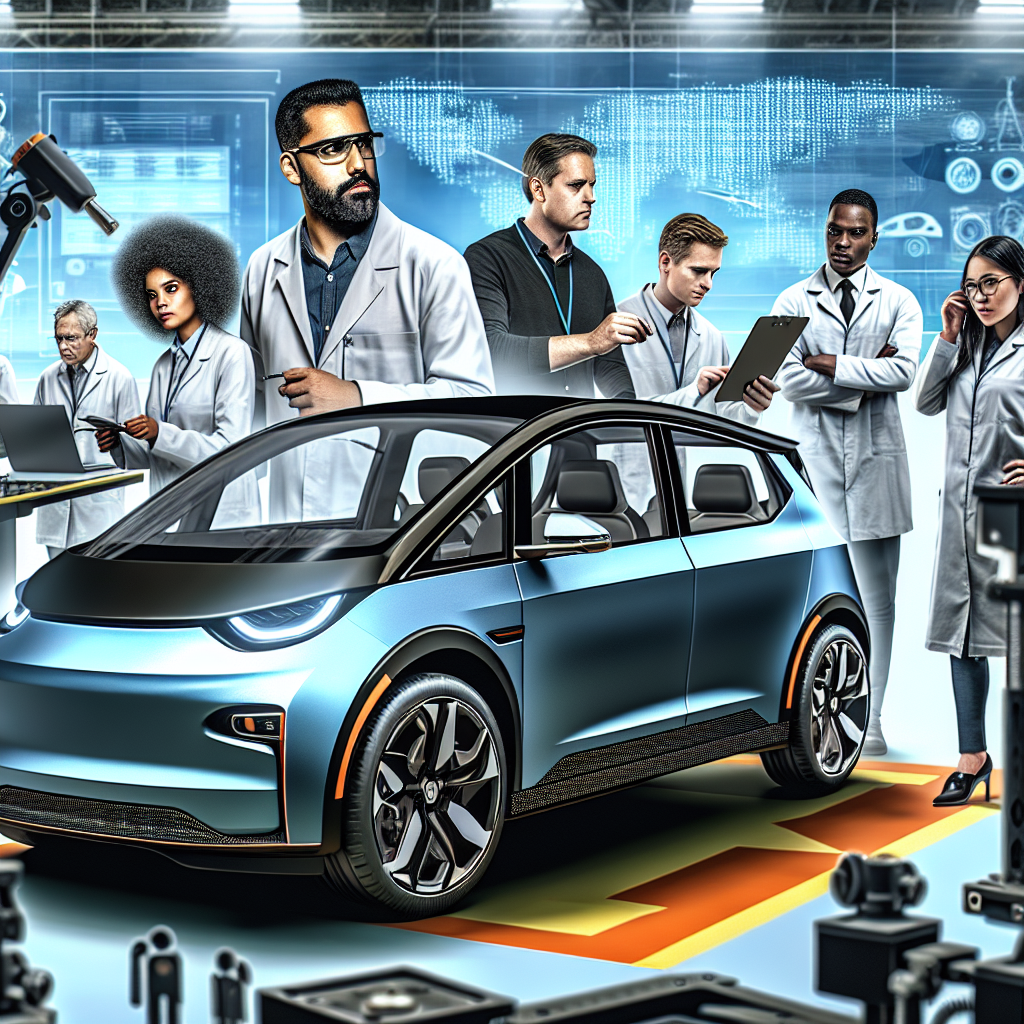Hyundai’s EV Partnership Faces Setbacks
Hyundai Motor Company, a global leader in the automotive industry, has been aggressively pursuing electric vehicle (EV) technology to secure its position in the rapidly evolving market. However, recent developments indicate that Hyundai’s ambitious EV partnerships are encountering significant challenges. These setbacks could impact the company’s strategic goals and its ability to compete with other automotive giants in the electrification race.
Background: Hyundai’s EV Ambitions and Strategic Partnerships
Hyundai has made substantial investments in EV technology, aiming to become a top player in the global electric vehicle market. The company’s strategy involves forming partnerships with battery manufacturers, technology firms, and other automakers to accelerate innovation and reduce costs.
One of Hyundai’s most notable collaborations has been with LG Energy Solution, a South Korean battery manufacturer. This partnership was designed to secure a steady supply of lithium-ion batteries, which are critical components for EV production. Additionally, Hyundai has engaged in joint ventures with companies like Aptiv to develop autonomous driving technologies and with Rimac Automobili to enhance high-performance electric vehicle capabilities.
Setbacks in Battery Supply and Production
Despite these promising collaborations, Hyundai’s EV partnerships have recently faced several hurdles, particularly in battery supply and production. The global shortage of semiconductor chips and raw materials such as lithium and cobalt has disrupted the supply chain, causing delays in battery manufacturing.
- Battery Supply Constraints: LG Energy Solution has struggled to meet the increasing demand for batteries, leading to production bottlenecks for Hyundai’s EV models.
- Raw Material Price Volatility: The prices of lithium and cobalt have surged by over 50% in the past year, inflating production costs and complicating contract negotiations.
- Geopolitical Tensions: Trade restrictions and export controls, especially between China and South Korea, have further strained supply chains.
These factors have forced Hyundai to delay the launch of some of its key EV models, such as the Ioniq 6, which was initially slated for a 2023 release but has seen production setbacks.
Technological and Regulatory Challenges
Beyond supply chain issues, Hyundai’s partnerships have also encountered technological and regulatory obstacles. The rapid pace of innovation in battery technology means that companies must continuously adapt to new standards and safety requirements.
- Battery Safety Concerns: Recent recalls in the EV industry due to battery fires have heightened scrutiny from regulators, compelling Hyundai and its partners to invest more in safety testing and quality assurance.
- Regulatory Compliance: Stricter emissions and safety regulations in key markets like the European Union and the United States require constant updates to vehicle design and software, increasing development costs.
- Software Integration Issues: Collaborations with tech firms have faced challenges in integrating complex autonomous driving and battery management systems seamlessly into Hyundai’s vehicles.
Case Study: The Impact on Hyundai’s Market Position
Hyundai’s setbacks have had tangible effects on its market performance. According to a recent report by S&P Global Mobility, Hyundai’s global EV sales growth slowed to 12% in the first quarter of 2024, compared to 25% growth in the previous year. This slowdown contrasts sharply with competitors like Tesla and Volkswagen, which have maintained double-digit growth rates despite similar industry-wide challenges.
Moreover, Hyundai’s stock price experienced a 7% dip following announcements of production delays and supply chain issues, reflecting investor concerns about the company’s ability to meet its EV targets.
Looking Ahead: Strategies to Overcome Challenges
In response to these setbacks, Hyundai is adopting several strategies to stabilize its EV partnerships and regain momentum:
- Diversifying Battery Suppliers: Hyundai is exploring partnerships with alternative battery manufacturers, including solid-state battery startups, to reduce dependency on LG Energy Solution.
- Investing in Vertical Integration: The company is increasing investments in raw material mining and battery recycling to secure supply chains and reduce costs.
- Enhancing R&D Efforts: Hyundai is accelerating research into next-generation battery technologies and autonomous driving software to stay competitive.
- Strengthening Regulatory Engagement: Proactively working with regulators to ensure compliance and influence future EV policies.
Conclusion
Hyundai’s journey toward electrification, while ambitious and forward-thinking, is currently facing notable setbacks due to supply chain disruptions, technological challenges, and regulatory pressures. These obstacles have slowed production timelines and impacted market performance, underscoring the complexities of transitioning to electric mobility in a highly competitive environment.
However, Hyundai’s proactive approach—diversifying suppliers, investing in vertical integration, and enhancing R&D—demonstrates its commitment to overcoming these challenges. The company’s ability to adapt and innovate will be crucial in maintaining its position as a key player in the global EV market. As the industry continues to evolve, Hyundai’s experience serves as a valuable case study on the importance of resilience and strategic agility in the electrification era.





